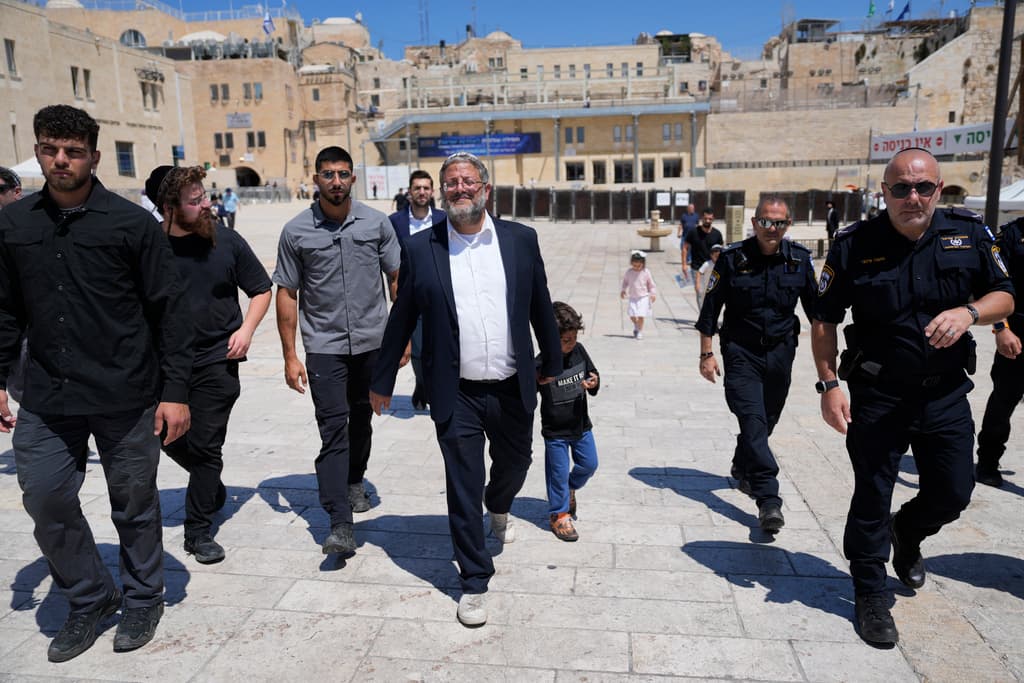The USA has expressed harsh criticism of Itamar Ben-Gvir, stating that he has damaged efforts to establish a ceasefire in Gaza.
It's not just unacceptable, it undermines what we believe is a critical time, as we work to get this ceasefire agreement in place, said State Department spokesman Vedant Patel to reporters.
The UN is also criticizing what happened at the al-Aqsa mosque.
The al-Aqsa mosque, like other holy sites in Jerusalem, should be left in peace, said UN spokesman Farhan Haq, calling Ben-Gvir's actions "unhelpful" and "needlessly provocative".
Condemns the action
EU foreign policy chief Josep Borell writes in a post on the X platform that the EU strongly condemns Ben-Gvir's actions and calls them provocative, and France's Foreign Ministry agrees in a statement, calling the action an "unacceptable provocation".
Earlier on Tuesday, Itamar Ben-Gvir's boss Benjamin Netanyahu also criticized him for defying the Israeli government's rules.
Itamar Ben-Gvir and around 2,250 other Israelis walked through the area, where both the al-Aqsa mosque and the Dome of the Rock are located, on Tuesday morning. They sang Jewish psalms with the protection of Israeli police, according to an official from Waqf, the foundation that manages the holy sites. Israeli police also "imposed restrictions" on Muslim worshippers who tried to reach the mosques to pray.
We must win this war. We must win and not participate in the negotiations in Doha or Cairo, says Ben-Gvir in a video recorded in the area.
Advertisement
Prime Minister Benjamin Netanyahu stated in a statement on Tuesday that the morning's "incident" is an exception, and that it is the government and the prime minister – not individual ministers – who decide what applies on the Temple Mount.
Not allowed to pray
Both Jews and Muslims claim ownership of the area on a hill in Jerusalem's Old City, and visits like Ben-Gvir's are seen as a provocation.
Jews and other non-Muslims are allowed to visit the area – which in Arabic is called al-Haram al-Sharif – at certain times, but they are not allowed to pray or display religious symbols.
In recent years, the restrictions have increasingly been ignored by religious nationalists like Ben-Gvir, which has sometimes led to violent reactions from Palestinians.






